Orgies in a monastery and sex with a hundred eunuchs (7 photos)
5 Most Outrageous Sex Scandals of the Middle Ages 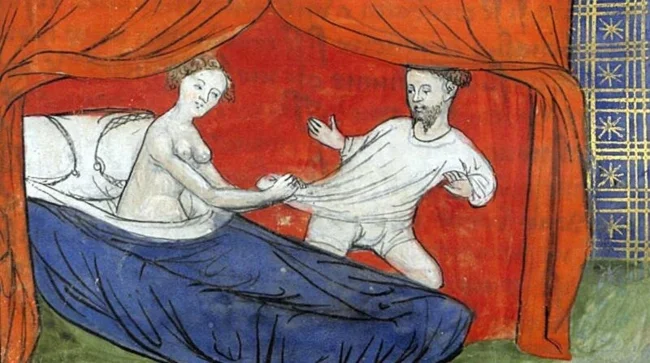
Leonardo da Vinci was accused of being fond of orgies. William the Conqueror, despite all his successes, was called the "Bastard" until the end of his life, since his father sinned with the daughter of a tanner. Pope John XXIII was accused of raping 300 nuns. And the son of Pope Alexander VI, Cesare Borgia, held evenings in the papal palace, where naked prostitutes picked chestnuts from the floor.
In general, they knew how to have fun back then too. We have collected 5 of the most outstanding stories for you. Although, of course, there are many more.
Orgies in the Littlemore Nunnery. Early 16th century
A story in which dissolute nuns, BDSM and drunk football fans are intertwined 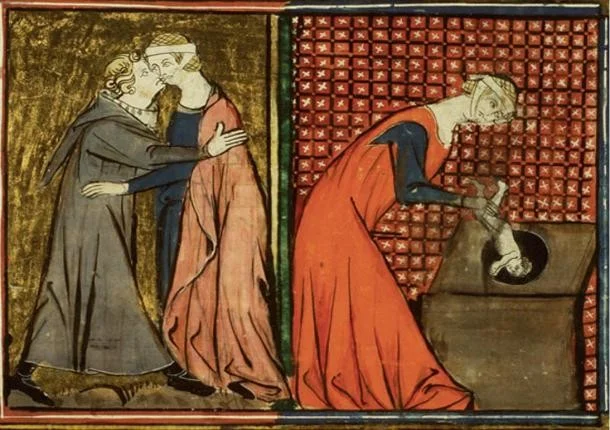
The debate about whether to classify the beginning of the 16th century as the Middle Ages or not is still ongoing. But for our history this is not essential, especially since it began in the 13th century. The Littlemore Nunnery was built in Oxfordshire in 1245, and from the very beginning, the spiritual life there was not going well.
At first, this place became famous as dangerous: apparently, the contractors saved a lot on materials, and the first nuns who moved in prayed daily that the ceiling would not collapse on their heads. Then bad rumors about Littlemore spread among pilgrims: allegedly, the abbesses of the monastery offered pilgrims a place to stay overnight, and then presented huge bills for it.
By the 15th century, the monastery had already become famous as a real nest of debauchery and rampant theft (few people remember that these two things often go hand in hand). The nuns lured young country boys to their monastery and organized orgies there. And when the wine warehouses were empty and there was nothing to drink, they began to sell utensils.
These little pranks could have been hidden further, if not for the new abbess Catherine Wells's penchant for sadomasochism. The nuns complained of constant beatings and cruel, unjustified punishments. Over the eight years of this lady's reign, many complaints accumulated, and in 1518 the Bishop of Lincoln sent his commissioner here.
The envoy who arrived found that everything was even worse than it seemed. Judging by the denunciations, Littlemore had turned into a real brothel. The nuns were starving, because they had sold almost all their food supplies. There was no wine left. But the most scandalous thing: the abbess gave birth to a girl from a priest from Kent named Richard Hughes.
Most of the candlesticks and silver trays sold by the abbess of the monastery were saved for a dowry for her daughter. So at least she was not alien to maternal love. 
It all ended even more bizarrely than it began. By order of the bishop, the monastery was disbanded (before that, the nuns set it on fire, almost burning it to the ground). The building was abandoned, and a couple of hundred years later, the pub "Priory" was opened in the only remaining extension. In 2013, it was destroyed by a crowd of drunken football fans.
Balthasar Cossa - a pirate and libertine who became Pope John XXIII. XIV century.
When robberies, the rape of 300 nuns, sodomy and sex with a witch are not an obstacle to spiritual life 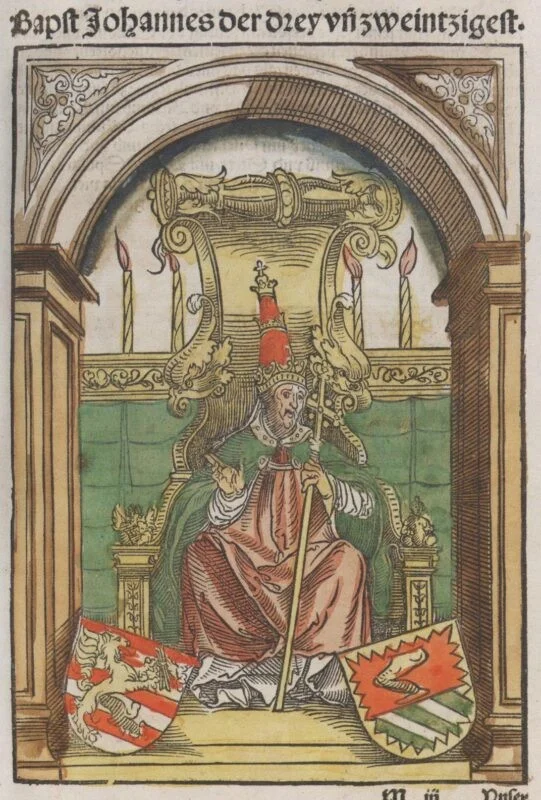
Pope Balthasar Cossa is such an odious figure that he deserves a separate article. He was fantastically sinful and monstrously lucky. Having started out as a simple student, engaged in robbery at the University of Bologna, he rose to the leader of a pirate crew that stormed the Mediterranean coast.
But even the small sins of youth, as well as the fact that his lover was a woman officially declared a witch and sentenced to be burned, did not bother Pope Urban VI at all. He took the smart guy into his service and allowed him to rise to the rank of bishop. After Urban's death, Balthasar himself ascended the throne under the name of John XXIII, though not in Rome, but in Pisa.
Just a year later, he was overthrown. The Pope was charged with 74 counts, including sodomy, the rape of 300 nuns, denial of the afterlife, the sale of holy relics, the murder of Pope Urban, currency transactions, sex with his own granddaughter, the burning of monasteries, and the torture of bishops.
There were more sophisticated charges, such as an alleged orgy involving an entire family, including father, mother, son, and young daughters. A common man would have been executed for half that. But Balthasar was no common man, he had the audacity to come to the new Pope with a confession, and the Pope returned him to the rank of Bishop of Bologna. By the way, a monument was erected on his grave, which was designed by Donatello himself.
Philosopher Pierre Abelard and his student Heloise. 12th century.
A romantic story that ended in castration 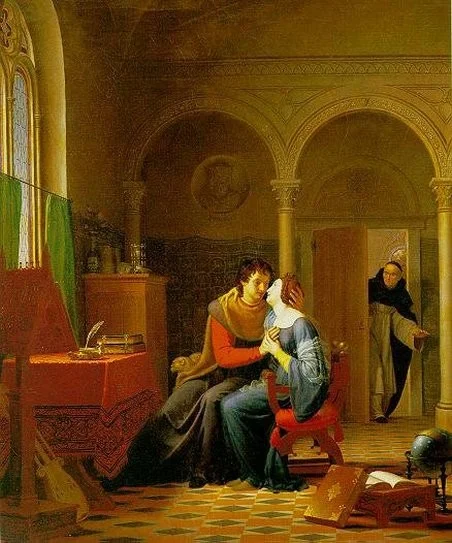
Pierre Abelard is one of the most famous philosophers of the Middle Ages. He was an ambitious cleric, a brilliant orator, preacher, poet, theologian and scholastic. But it was not his philosophical works that made him truly famous, but a sexual scandal that shook all of Europe.
Abelard, among other things, earned extra money by teaching. One of the spiritual patrons of Paris, Canon Fulbert, entrusted him with his 17-year-old niece Heloise - and, as you might guess, soon regretted it. Instead of studying scholasticism, Abelard and Heloise began studying anatomy and at some point the girl became pregnant, but this was only the beginning of real problems.
Fulbert ordered Pierre to marry the student and recognize his son. Abelard agreed. However, at some point, Heloise returned to her uncle's house - despite the wedding, she refused to marry. She thought that this would destroy Abelard's brilliant spiritual career.
Fulbert, naturally, decided that Pierre had brainwashed her with his scholastic tricks. He reacted extremely sharply: his servants broke into Abelard's house in the middle of the night and castrated the philosopher. However, he not only survived, but also won the war for the minds of his fellow citizens against Fulbert.
Abelard became a monk, and Heloise did the same. Both of them continued to send each other heartfelt platonic love letters until their death, over which all of France wept.
Fulbert was recorded as a villain, Pierre as an innocent thinker, Heloise became a symbol of pure and immaculate love. Their son, named Astrolabe, was left without parents - in the care of the same Fulbert. In general, now this story seems damn unhealthy from all sides, and the overly ardent uncle even evokes some sympathy. But who are we to judge the affairs of the 12th century?
The Danish king Valdemar and his wife's sister. 13th century.
How to Lose a Kingdom Due to Spontaneous Sex with a Relative 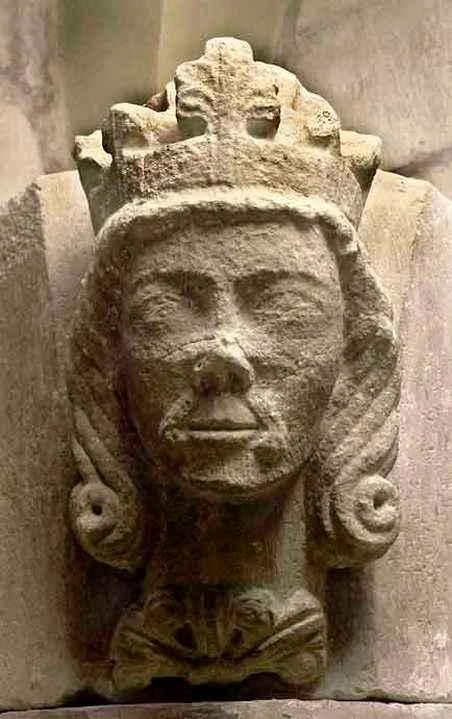
The Swedish king Valdemar I Birgersson managed to lose everything - both power and life - in the most stupid way. He lost the respect of the Pope, was publicly declared "not responsible for his actions" (basically an idiot) and eventually lost the throne - all because of his inability to contain his Gungnir in his pants.
Valdemar was married to the daughter of the Danish king Eric IV, nicknamed Plowgrosz. He also masterfully squandered his throne due to huge taxes, but at least he managed to arrange a good life for his daughters. The eldest, Sophia, just happened to be Valdemar's wife, and the youngest, Jutta, ended up in a monastery.
However, she ran away from there, asked Sophia for shelter, and almost immediately bewitched her husband. Valdemar and Jutta did not even try to hide their affair, especially since they had a child.
And even more: the Swedish king was so crazy that he personally went to the Pope in Rome to ask permission to divorce his older sister (who was too boring) in order to marry the younger one (who loved adventures and spontaneous sex). Even in the 16th century, Henry VIII had to create his own church to deal with his adulteries. What can we say about the 13th century.
In short, the Pope not only refused Valdemar, but also obliged him to pay a colossal indulgence. Returning home, the king "delighted" his subjects with excellent news: firstly, the church officially recognized him as a grave sinner, and secondly, ordinary taxpayers would pay for it.
Naturally, other pretenders to the throne immediately arose, Valdemar was declared incompetent and overthrown. He did not give up so easily, and for a long time tried to raise rebellions and attract foreign troops to the country, but in vain. This only worsened his situation, and instead of house arrest, everything ended in murder: apparently, he was simply starved to death in Nyköping Castle. Incidentally, the fortress was eventually destroyed by rebels loyal to the king, so it can also be listed as a victim of this story.
The Sexual Adventures of Emperor Zhengde. 15th century.
The ruler who slept with his subordinates to strengthen his power 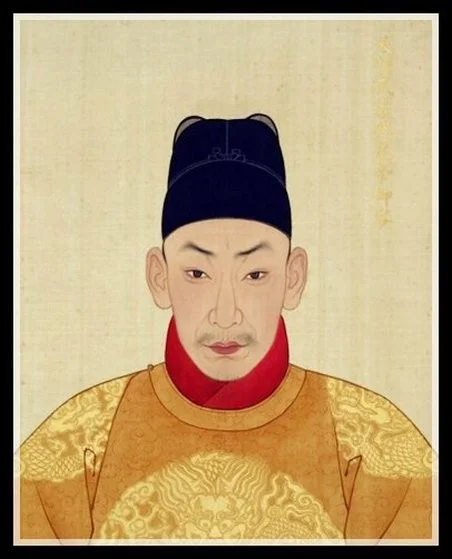
But it wasn't just European monarchs and nuns who excelled in sinful deeds. Chinese rulers were millennia ahead of them in depravity. However, the emperors lived in extreme isolation, and even their most perverted antics were overlooked. Stories of imperial misdeeds leaked to the people only when it could deprive the dynasty of the Mandate of Heaven.
For example, Emperor Wenxuan loved to run around naked (and wearing women's makeup) in front of his subjects and could easily fall asleep drunk on the street. Emperor Gaozu hated Confucian scholars so much that he knocked their hats off and urinated in them in front of all the honest people; ironically, he made Confucianism the state ideology - when he realized how convenient it was for governing the country.
Emperor Di Xin ordered to make a pond for himself filled with wine and islands of snacks - to the joy of the monarch, many of his officials drowned in it. However, he himself was eventually overthrown, and he ended his reign by jumping into a blazing brazier.
Against their background, Emperor Zhengde of the Ming Dynasty looks a little more adequate - at least he tried to govern the country, and did not drink like hell. The young ruler learned Arabic, Mongolian and Sanskrit; conducted successful military campaigns against the Mongols, secured the northern borders, and prevented a major uprising.
But he was remembered even more for his eccentric behavior. Zhengde took lovers among the eunuchs, and he adopted a hundred of them. He also liked to dress up as a simple city dweller and visit cheap brothels, sometimes bringing unsuspecting prostitutes to his palace.
But the most outrageous fact, according to contemporaries, was that the emperor's favorite lover was an Islamic subject, Said Hussein, the governor of the city of Hami. However, it is assumed that this was more of a political than a love affair - the city was the most important stronghold in protecting the country from the Mongols. Apparently, for Zhengde, this was the most reliable and familiar way of uniting with his subordinates.






























